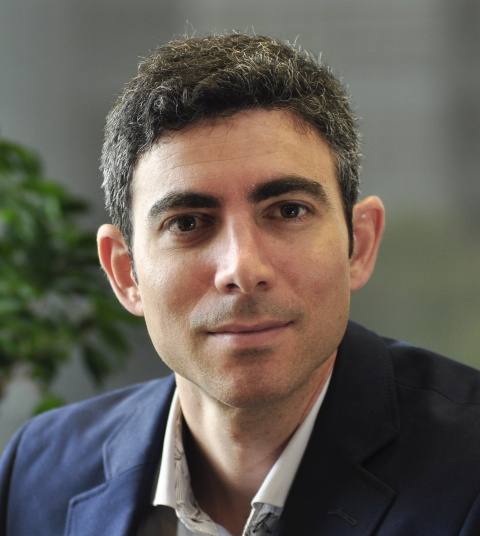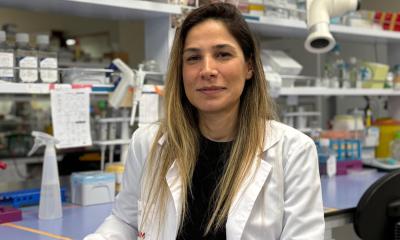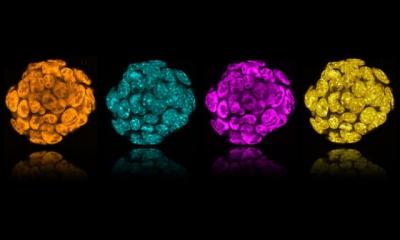News • Meyenburg Award
A high distinction for a pioneer in liquid biopsy
Nitzan Rosenfeld from Cancer Research UK in Cambridge is being honored with the 2017 Meyenburg Award, which carries a €50,000 monetary prize. He receives the award for his excellent work on the detection of tumor DNA in the blood.

Rosenfeld has made seminal contributions to advancing a method for detecting cancer DNA in the blood to applicability in cancer medicine.
The Meyenburg-Award will be presented at a symposium held at the German Cancer Research Center (DKFZ). DNA from all cell types of the body continuously circulates in our blood.
When a person has cancer, fragments of tumor cell DNA are also amongst them. Since cancer cells often exhibit typical genetic alterations, one can differentiate cancer DNA from genetic material of healthy cells.
Nitzan Rosenfeld’s work has been instrumental in advancing the detection of tumor DNA in blood samples
Christof von Kalle
Detecting cancer DNA in blood samples, a method known as liquid biopsy, opens a host of new possibilities for physicians. Nitzan Rosenfeld, a physicist by education, has made pioneering accomplishments in this field. One milliliter of blood contains about 10,000 floating DNA molecules from healthy cells and only a few dozens from cancer cells. Rosenfeld has developed techniques to amplify, sequence and identify cancer DNA fragments even if only traces of them are found.
Physicians will be able to use these methods in order to track whether the tumor responds to therapy. Since liquid biopsy can be repeated without problems at monthly intervals, the non-invasive method can also be used to monitor whether a tumor has returned after initial treatment. Optimistic medical experts even expect that in the future it will be possible to detect cancer using blood sample tests alone.
“Nitzan Rosenfeld’s work has been instrumental in advancing the detection of tumor DNA in blood samples from an experimental technique to a method opening a multitude of new options in cancer medicine,” says Christof von Kalle, who is a board member of the Meyenburg Foundation. He continues: “For many common cancer types, colleagues could already show in large studies what liquid biopsy can do. For example, a recurrence of bowel cancer could be detected based on a rise in cancer DNA in patient blood ten months earlier than by medical imaging. In lung cancer cases, colleagues were able to show how therapy resistance develops.”
Source: German Cancer Research Center
28.11.2017





